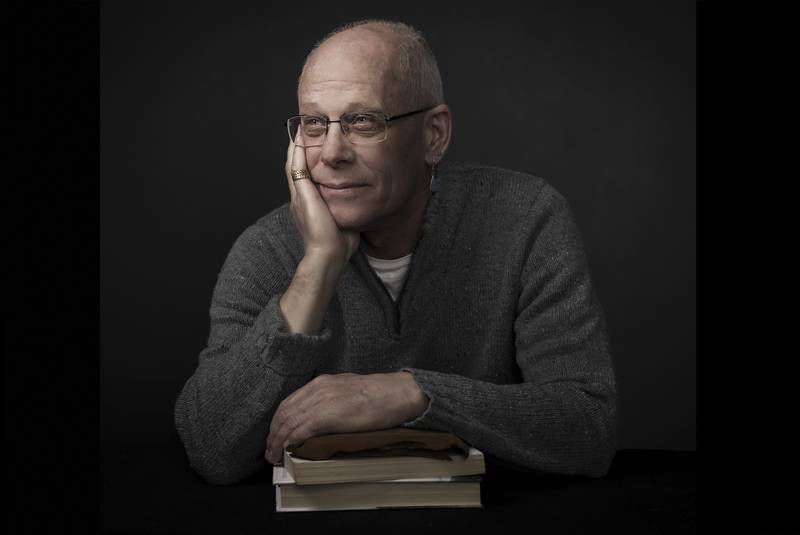
KJIPUKTUK (Halifax) – In this federal election Chris Frazer is running for the Communist Party in the large and mostly rural district of Central Nova.
Frazer is a history professor at St. Francis Xavier (StFX) University in Antigonish, where since his arrival in 2004 he has fought homophobia in the town and in the university, and engaged in union work as well.
Frazer is also an accomplished drag performer, and was instrumental in establishing Priscilla, Queen of the Highlands, the biggest Canadian drag show east of Montreal, filled with local and nationally recognized drag performers.
We talked about climate justice, how to turn things around in rural Nova Scotia, poverty, housing, public transportation, anti-Black and anti-Indigenous racism, homophobia, Northern Pulp (of course), and much more.
We talked quite a bit, actually. What follows is an abbreviated version of the interview. Reluctantly, I left out some very interesting stuff, particularly around some of the major fights against homophobia Frazer got involved in when he first arrived in Antigonish.
This link will get you the full transcript of the interview.
Let’s talk about communism and how it informs what you are doing. And, related to that, are you in this campaign to win? Or for another reason?
I have never campaigned on anything not to win. Winning could mean getting elected, or pushing a political agenda further. Mostly I’m trying to add some depth to political conversations that are happening in this constituency.
Most of the candidates are following a strategy that I see as being unconscionably safe. Especially in a time like the one we’re living in, where if we don’t do something bold and meaningful it may end up being too late for us. We have a climate crisis above all else, which really has to be addressed. It is now no longer a matter of trying to save the polar bears, this is about saving humanity, period.
The question also is, what kind of a future do we want? Are we ready to just settle for anything, just for being saved? Or do we want to take this opportunity to make the world into a better place. That’s my message.
We can do something to slow down, and at least stabilize the climate situation. We need to do so in a way that’s not only going to be effective, but that will also set the stage for a world where life is equitable, and where people don’t experience oppression and exploitation.
What has brought us to this point is the capacity of capitalism to generate profit from the misery of others. It is as if the ruling class has learned to turn off their empathy for the suffering of others. They extract resources as much as they can, and sell them for as much as they can, while exploiting the labor of others as much as they can. And all of it is a wasteful process. It’s almost as if it’s ingrained in the system.
Now, I mentioned this, because I keep hearing from the Liberals and the Conservatives that really nothing has to change. Our Prime Minister actually just proposed that you can buy a pipeline and take oil out of the ground, and then use the proceeds to plant two billion trees and save the earth. It’s lunacy. It tells me they do not have a firm grasp on the reality of the issues confronting us.
I’m personally quite frightened by that, if they really believe that, then we’re in a much worse place than I ever would have thought.
My ideas are informed by communism, which means that we have resources that absolutely need to be shared equitably, and not to be exploited, but used to sustain people as they grow.
From each according to his ability, to each according to his needs”, that’s a fundamental premise in my approach. That is what distinguishes me from other candidates. And perhaps it’s just that I somehow see fairly clearly that we live in a class based society where a very small group profits from our resources and the rest of us are left to scramble as best we can. And we don’t have to do it that way, you know, a better world is possible.
The problem I see is that we just have very little time left. We’ve tinkered with the system as it is, I think, as much as we can. We have exhausted possibilities under capitalism, and this is why we’re plunging into crisis.
If I have any advantage it is that I’m a historian. I’m always looking at these things as a historian. It astounds me that in 150 years, such a short period of time, we’ve moved from the beginning of industrial production based on mass extraction and mass production, and how quickly that has run its course.
And if you were to chart the correlation between the increase in production and increasing profits, and the damage that is being done to the climate, it tracks almost completely. There is no question that this is a function of industrial production, and more specifically, of capitalism
We have at least one example of a of a socialist state that actually has confronted this kind of a crisis and survived it. And this was Cuba in the 1990s. So there is a possibility for creative and successful human response. But I don’t believe that we can manage it any longer within the confines of a system that is committed to profit first and foremost, profit above the interests of people, profit above nature.
What is going on in rural Nova Scotia in terms of outmigration, an aging population, and similar woes? What needs to be done to turn that around?
We’re just another resource, and that resource is labour power. People are being pulled out of their communities to somewhere else, whether that’s to Halifax, or whether it’s further away. People become desperate enough when conditions continue to deteriorate. That’s what we’re witnessing here.
And then again, (in Antigonish) we’re relatively lucky, we benefit from the presence of a university as well as hospital. This really does drive employment in Antigonish, but this too has some very negative features that come along with it. We live in or in a rental market which has been completely captured by absentee landlords. The price of real estate here is distorted beyond belief, because most of the housing stock is in the hands of absentee landlords. And they will charge $400 to $600 for a room. They subdivide houses to get more rooms out of it. And that in turn artificially inflates the price of all the real estate around it.
Now low income people, working class people, are not living in town any longer, We’re surrounded by communities of of trailer parks, right outside of the town limits, because property taxes are cheaper in the county, and land is cheaper in the county. They’re literally being pushed out of town by the cost of real estate.
The cutbacks to the hospital will also become a problem, We have a health care system which is under attack. I am quite certain that the intention is to deliberately cause a crisis in the healthcare system so that it can be privatized, broken up and sold off. There’s a P3 that’s going up in Sydney. That’s the beginning of it. That’s going to be another blow to the economy here.
And the same thing with the university. It boggles my mind that students are paying are paying $8,000 or $9,000 a year for an education at StFX. Meanwhile, the support workforce at StFX was much larger when I arrived. Now many of the positions are part time or casual. So they get away with paying them less, and offering fewer benefits.
This pushes the standard of living down even further in Antigonish. But we’re fortunate. We have these problems here in Antigonish, but we’re still better off then say New Glasgow, Pictou, or Stellarton.
It’s no wonder that the union for Northern pulp, for example, is fighting as hard as they can, I think wrongly, to keep the mill open. Because closing it down is going to lead to job losses and poverty for a lot of people. And it is a horrible choice to have to make. What they do want is jobs with good wages and benefits. What I don’t understand is why a solution can’t be reached where you transition those workers out of that workplace, without any loss of pay or benefits.
First of all, compensate the residents of Pictou Landing. They have borne the worst of it. That mill has destroyed human bodies, it has destroyed the environment in the community and beyond, into Pictou County itself.
There’s no question that the mill needs to be closed. Unless there are plans for the transition, then we’re not really taking climate change seriously. Northern Pulp is a flashpoint for the whole thing. If the McNeil government had the slightest sense of decency they would be looking for a way to protect the citizens of that area rather than the interests of the owners of Northern Pulp, which is pretty much all they’re doing.
People ask,so what’s the alternatives? I don’t have all the answers, but I know where we can start. And one place is by investing money back into rural Nova Scotia.
One thing that we absolutely need is a stable and affordable power grid across this province. Our power lines fall down at even the hint of a storm now. All because Nova Scotia Power does not want to invest that kind of money into its infrastructure, they will run it to the ground first. Fixing this begins with expropriating Nova Scotia Power and put it back into the public domain. Then all the work that needs to make the power lines more stable will generate jobs in rural areas.
Another thing, is mass transportation. We have everybody chained to their cars, because they can’t rely on a bus service and there is no passenger rail. And some people do not have cars. Transit may or may not operate at a loss, but we have an obligation to provide that to people. It needs to run regularly, and it needs to run not just from Sydney to Halifax. We could run a carbon neutral train passenger service as well.
So it’s possible to provide affordable mass public transportation, but we don’t have it. It’s a crying need. Building the infrastructure, maintaining the infrastructure and operating it would create jobs.
The school system is really challenged. The cutbacks that are made to education are just truly outrageous. We need more teachers, we have teachers who need jobs, why don’t we employ them and employ them in rural Nova Scotia?
Then there is promotion of culture. One of the things that I really love, and that surprised me a lot when I first moved here, was this powerful do it yourself mentality in this community. I’m sure it exists elsewhere as well. If something is lacking, people find ways to make it happen.
How you would deal with the deep poverty that exists in rural Nova Scotia.
Most people in this riding live within a few dollars of financial disaster every month, and other people, often people on welfare, actually live in that state of financial disaster constantly. It breaks people mentally and physically. It’s just so hard to bear, and children often bear the worst.
So what can we do? Well, we must guarantee food security. We need to start thinking about changing the way we produce food in order to make it easier, and more profitable to a degree, for small producers to survive here.
That’s the production side, then there’s the distribution side. In recent years, since I got here, it’s Loblaws and Sobeys who run the show here. They get to decide what foods come in, and how much they’re going to charge for it.
We need to take control over how food is produced, how it is distributed, and what it costs to consume. People need to have a guaranteed basic supply of healthy food. People have to eat.
The second thing to do is to build social housing throughout rural Nova Scotia that keeps rents low. And not just housing that’s run by some government agency. It has to be run on a democratic basis, so that tenants themselves decide. In that sense we’re talking about a collective ownership, that gives people some control and power over their lives. That’s one of the things that’s missing in a lot of what we do.
Across the country we’re calling for a million units of social housing to be built. We are in a serious housing crisis. We must have an effective tenancy act, especially one that has an effective mechanism for filing complaints against landlords who are violating the law. I would also like to see rent control reintroduced.
It’s also about the income you earn, which is not enough. We need a living wage, which I’m pretty sure is around the $20 an hour mark. We should be guaranteeing people a living wage and control their major expenses, which include transportation, housing, and food on your table, and your utilities. If that was a unified, integrated program for reform in this province, then we would strike a mortal blow against poverty here.
Is there anything else? Anything I should have asked you about?
Well, the only other thing I would say is that one of the issues that I’m very concerned about are the circumstances faced by First Nations people and the tendency of governments, both provincial and federal to run roughshod over their rights.
I am thinking of Alton Gas and Pictou Landing as just two examples. I have come to the conclusion that we cannot solve the climate crisis without respecting the rights of Indigenous communities in Canada, the two go hand in hand.
The other issue is about racism, pure and simple. Sometimes it’s like a polite racism here, but it’s deep. There are lots of people of color in his community, but they’re hidden away. This is a matter of racism, pure and simple.
The final issue is ensuring that the rights of LGBTQ people are protected and respected. Partly because this is personal, and partly because through my advocacy for LGBTQ people I have acquired a better understanding of how prejudice and discrimination affects other communities here as well.
We cannot meaningfully talk about creating a just society or a society where people get a fair shot when we’re still being afflicted by that kind of hatred.
With a special thanks to our generous donors who make publication of the Nova Scotia Advocate possible.
Subscribe to the Nova Scotia Advocate weekly digest and never miss an article again. It’s free!



